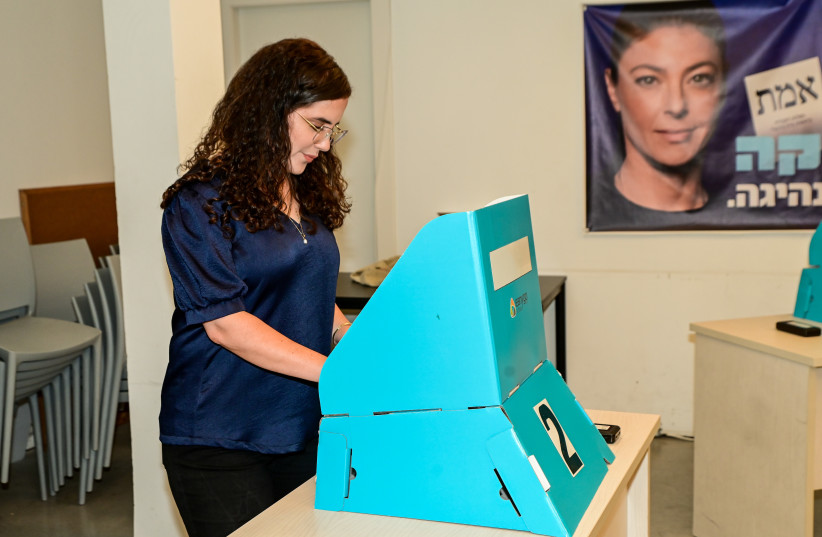The Meretz and Labor parties reached an understanding on Wednesday that if they end up running separately in the upcoming election they will sign a surplus vote-sharing agreement.
The agreement stipulates that after being allocated their number of seats in the Knesset, the two parties pool their votes together in an attempt to win one of the "leftover" seats.
The deal was signed by Labor's Knesset faction leader MK Ram Shefa and Meretz faction leader MK Michal Rozin.
"We will act to prevent the establishment of a government by the Kahanist-Messianic side that plans the end of Israeli democracy and we will continue the change we started," Shefa said after signing.
Rozin added, "The upcoming elections are critical for the future of the country, we will do everything necessary to prevent the rise of Kahanism to power."

The pressure to merge
The signing comes as Labor and Meretz are facing growing pressure to merge into one party ahead of the September 15 deadline to hand in party lists. A campaign led by left-wing activists claimed that nearly 80% of the parties' voters supported a merger. While Meretz leader Zehava Galon supports the merger, Labor leader and Transportation Minister Merav Michaeli has consistently refused even to consider the issue.
"It is important to remember that in the 2020 election Meretz and Labor merged, and this decimated the Left to seven seats and brought [Likud leader MK Benjamin] Netanyahu to power," Michaeli said on Wednesday in response to the campaign. "In the 2021 election Labor and Meretz ran separately, doubled their strength with 13 seats and led to the formation of the 'Change Government'. We will continue acting responsibly in order to safeguard the rule of law and democracy," she said.
Yesh Atid and National Unity is the only pair of parties to sign an agreement so far.
The law dealing with surplus votes is called the Bader-Ofer Law, after Gahal MK Yohanan Bader and Alignment MK Avraham Ofer, who proposed it in 1973.
Knesset mathematics
The way seats are distributed between parties is by dividing the number of votes given to parties that pass the electoral threshold by 120, in order to get a general indicator of how many votes entitle a list to a seat.
Each party’s votes are then divided by the general indicator.
However, when the total number of seats per party, in whole numbers, is added up, they usually come to less than 120.
The seats left to reach 120 are first divided between lists that signed spare-vote agreements with each other. Which pair of lists receives each additional seat is calculated by dividing the number of valid votes given to both lists that made an agreement by the combined number of seats they won plus one more seat. The pair with the highest result gets a surplus seat, and the calculation is repeated for each pair, taking the new seat into consideration each time, until all 120 seats are filled.
The same calculation is done within each pair to determine which party out of the two gets the seat.
This method is called the Hagenbach-Bischoff system after Swiss physicist and electoral reformer Eduard Hagenbach-Bischoff (1833-1910), who allocated seats in a party list, proportional representation system.
It is used in Belgium and Switzerland, and Luxembourg uses it to allocate seats to the European Union.
Lahav Harkov contributed to this report.
